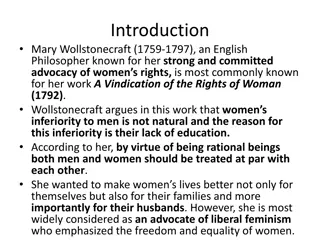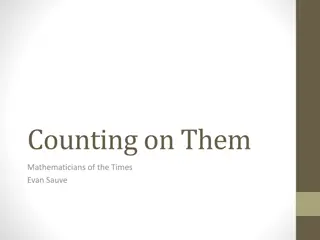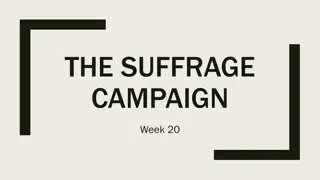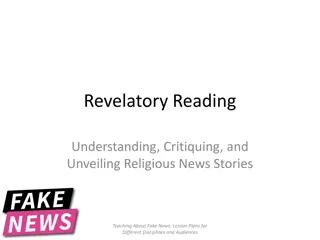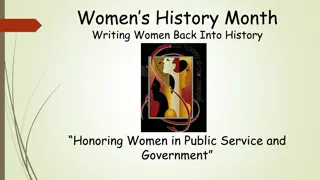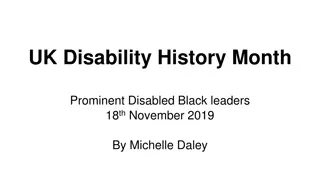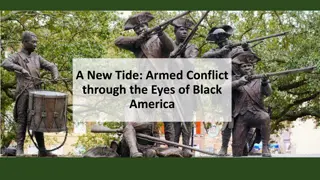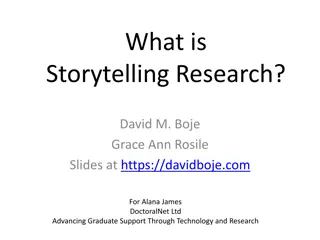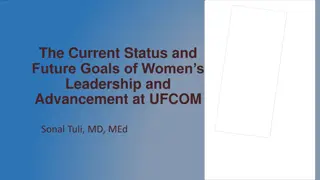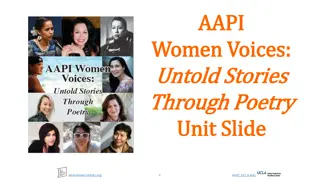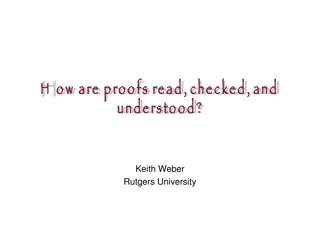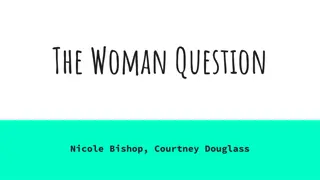Unveiling the Untold Stories of Women Mathematicians
Delve into the narratives of Olga Taussky-Todd, Marjorie Lee-Brown, and Maryam Mirzakhani to explore the struggles, triumphs, and unique perspectives of women in the field of mathematics. These accounts challenge stereotypes, humanize the role of women mathematicians, and shed light on their journey through a male-dominated space.
Download Presentation

Please find below an Image/Link to download the presentation.
The content on the website is provided AS IS for your information and personal use only. It may not be sold, licensed, or shared on other websites without obtaining consent from the author.If you encounter any issues during the download, it is possible that the publisher has removed the file from their server.
You are allowed to download the files provided on this website for personal or commercial use, subject to the condition that they are used lawfully. All files are the property of their respective owners.
The content on the website is provided AS IS for your information and personal use only. It may not be sold, licensed, or shared on other websites without obtaining consent from the author.
E N D
Presentation Transcript
Narratives of Women Mathematicians: A Neglected Aspect of History Through the stories of: Olga Taussky-Todd, Marjorie Lee-Brown, Maryam Mirzakhani Dionysia Pitsili-Chatzi University of Ottawa
Why narrative accounts? From a historical perspective: Looking at the mathematics community itself (Henrion, 1997). How women have negotiated their mathematical identities and their actions within a marginal space (Murray, 2000). Deconstructing the absoluteness of taken-for granted truths about mathematics and about what it means to be a mathematician.
Olga Taussky-Todd (1906-1995) Autobiographical Essay (Taussky-Todd, 1985) First years of schooling: grammar and essay writing [T]he greatest wisdom was not to be gained by reading books. I felt that scientific experiments provided an almost unlimited insight [ ] Mathematics, too, came to me at that time as an experimental subject, for I started to study the laws of the integers computationally. I defied the advice of several older people who tried to tell me that in spite of my dreams, all I knew was homework questions. Deciding to study mathematics: With all this past on my shoulders, I entered the university a very worn out, grief-stricken person, hoping to prove that my decision had not been wrong .
Marjorie Lee Browne (1914-1979) One of the first Black women to obtain a PhD in mathematics. She was a dedicated teacher, devoted to help Black students to study mathematics. I always, always, always liked mathematics. As a child I was rather introverted, and as far back as I can remember I liked mathematics because it was a lonely subject. I could do it alone. If I had my life to live again, I wouldn t do anything else. I love mathematics. (Kenschaft, 1980, 1981; 2005)
Maryam Mirzakhani (1977-2017) I did poorly in math for a couple of years in middle school; I was just not interested in thinking about it. I can see that without being excited mathematics can look pointless and cold. The beauty of mathematics only shows itself to more patient followers. I am a slow thinker, and have to spend a lot of time before I can clean up my ideas and make progress. I find discussing mathematics with colleagues of different backgrounds one of the most productive ways of making progress. (Mendaglio, 2017; Mirzakhani, 2008)
Implications Critique: Information based on narrative accounts is highly subjective (Murray, 2000). Problematic elements in prevalent discourses about mathematics and mathematicians in popular culture Narratives make women in mathematics visible, thus challenging the idea that being a woman and being a mathematician are incompatible. Impetus to humanize, rather than mythologize the role of women in mathematics. Narratives have the potential to deconstruct myths about mathematics and doing mathematics (e.g. the importance of thinking fast )
Sources/References Case, B. A. & Leggett, A. M. (2005). Complexities: Women in mathematics. Princeton, N.J: Princeton University Press. Henrion, C. (1997). Women in mathematics: The addition of difference. Bloomington: Indiana University Press. Kenschaft, P.C. (1980). Marjorie Lee Browne: In memoriam. The Association for Women in Mathematics Newsletter, 10(5), 8-11. Kenschaft, P.C. (1981). Black women in mathematics in the United States. The American Mathematical Monthly, 88(8), 592-604. Luchins, E. H. & McLoughlin, M. A. (1996). In memoriam: Olga Taussky-Todd. Notices of the American Mathematical Society, 43(8), 838-847. Mendaglio, J. (2017). Remembering Maryam Mirzakhani. Gazette: Ontario Association of Mathematics, 56(2), 22-23. Mirzakhani, M. (2008). Interview with research fellow Maryam Mirzakhani. In Annual Report 2008 (pp. 11-13). Cambridge, MA: Clay Mathematics Institute. Murray, M. A. M. (2000). Women becoming mathematicians: Creating a professional identity in post-World War II America. Cambridge, Mass: MIT Press. Taussky-Todd, O. (1985). An autobiographical essay: The truth, nothing but the truth but not all the truth. In D.J. Albers and G.L Alexanderson, (Eds.), Mathematical People (pp. 310-336). Boston: Birkhaeuser.
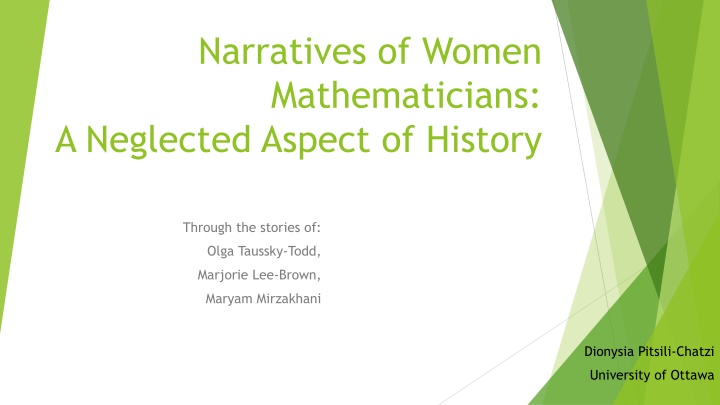


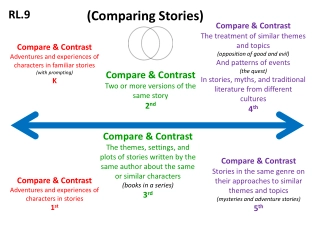
![Read⚡ebook✔[PDF] The Untold Stories of the Space Shuttle Program: Unfulfilled D](/thumb/21685/read-ebook-pdf-the-untold-stories-of-the-space-shuttle-program-unfulfilled-d.jpg)




